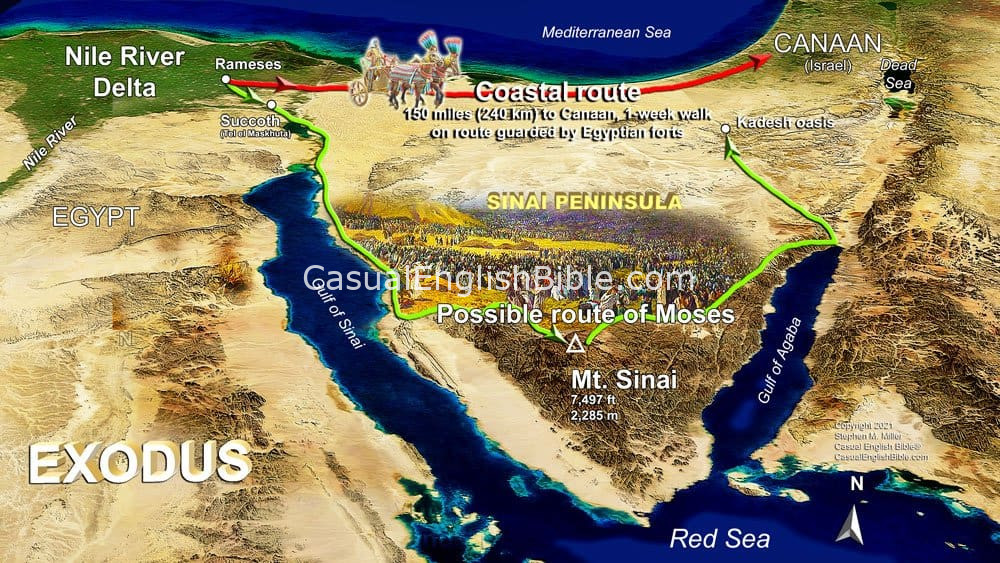Psalm 114
A lesson in respect
Earth respects God’s people
1Thank you, LORD. [1]After the people of Israel left Egypt,
After Jacob’s descendants left that foreign land,
2God had his Temple built on land in the tribe of Judah. [2]
Israel became his kingdom.
3The sea [3] took one look at these refugees and ran away.
Jordan River backtracked. [4]
4Mountains jumped like nervous [5] rams.
Hills jumped like startled lambs.
5What scared you, sea? What made you run?
Jordan River, what stopped you cold?
6Mountains, why jump like nervous rams?
Hills, why jump like lambs?
7Go ahead, earth, tremble before your master.
Shake in front of Jacob’s God.
8Who turned rock into a watering hole,
Solid Flint into a flowing fountain?
Footnotes
The Hebrew word is hallelujah, which is often translated as “praise the LORD.”
Scholars debate whether “Judah” is a reference to all of Israel, or perhaps just the southern Jewish nation of Judah, after the tribes split in two. In the second case, “Israel” might refer to the northern Jewish nation, which Assyrian invaders from what is now Iraq erased from the political map in 722 BC. The southern kingdom of Judah survived another century and a half, before Babylonian invaders from what is now Iraq wiped them off the map in 586 BC.
This refers to the parting of the water at the Sea of Reeds. Many Bibles say this story in Exodus 14 unfolded at the “Red Sea.” But the Hebrew words are yam suph, “sea reeds.” Scholars usually track Moses and the Hebrews escaping Egypt by walking southeast, out of the Nile Delta fields and toward the Red Sea and the Sinai Peninsula. They would have passed through lake regions along what is now the Suez Canal, which connects the Red Sea to the Mediterranean Sea. These lakes and ponds reportedly had reeds growing along the banks, like the ones the Bible says grew along the Nile River and helped anchor Baby Moses in a basket (Exodus 2:3).
The story of the Jordan River stopping so the Israelite ancestors of the Jewish people could cross is preserved in Joshua 3:14-17.
The original text doesn’t say why the hills are jumping. But the context seems to suggest they are afraid of God’s people, and not dancing for joy. The feeling might track with the fear the refugees felt when God appeared to them on Mount Sinai, (Exodus 19).
Discussion Questions
- Sorry, there are currently no questions for this chapter.









